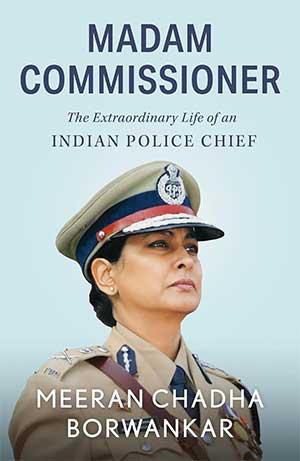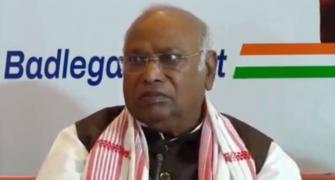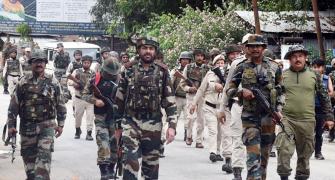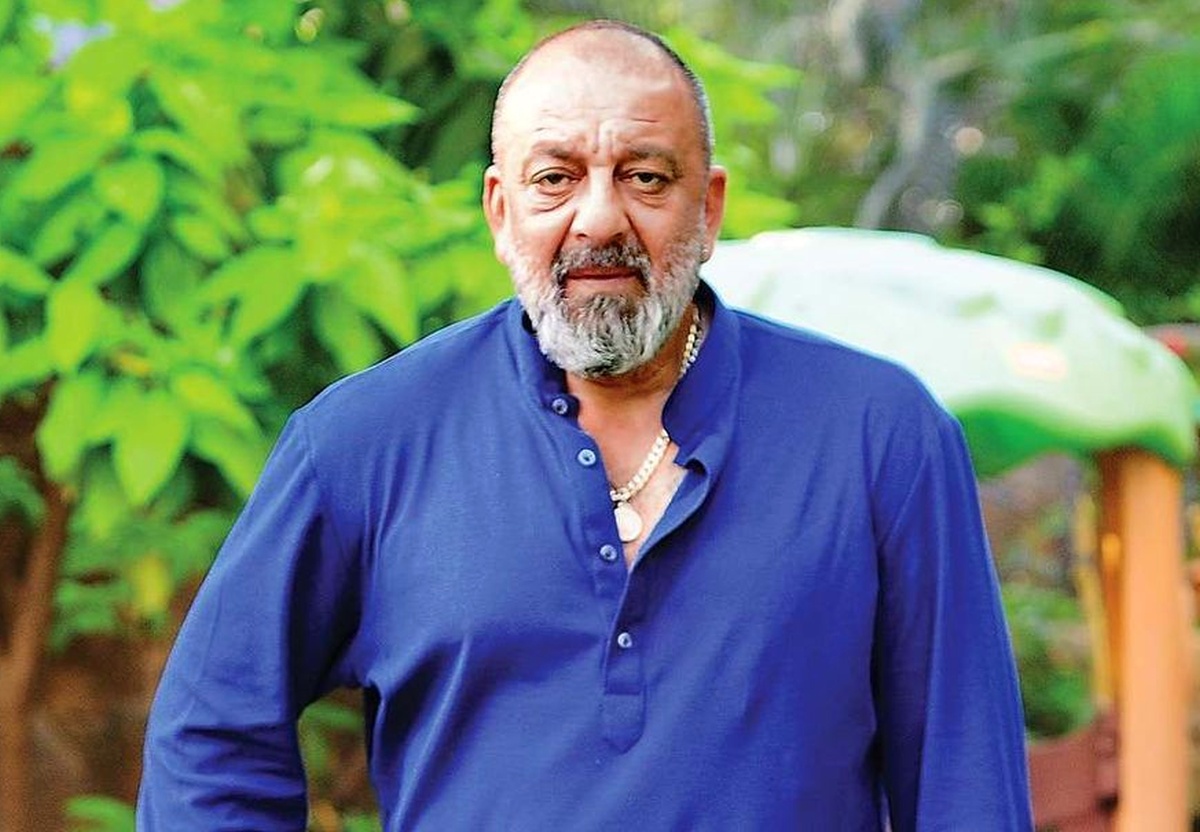A day before the event, I learnt from an old Mumbai crime branch informant that a group of gangsters were planning to serve breakfast to the prisoners at Balgandharva Rangmandir prior to the show.
An absorbing narrative excerpt from Meeran Chadha Borwankar's Madam Commissioner, The Extraordinary Life of an Indian Police Chief.

During a part of my tenure as the chief of Maharashtra prisons, the film star Sanjay Dutt was in jail.
He was first confined at Arthur Road Jail and later shifted to Yerawada Prison in Pune.
The transfer had to be kept confidential as the media was always sniffing around for Sanjay Dutt-related developments and tended to overpublicise the issue.
In the past, a huge crowd of journalists had chased the official vehicle in which he was being moved to a new location.
This time I tasked a senior prison officer for Dutt's transfer from Mumbai to Pune at night in order to avoid undue publicity.
But this turned out to be impossible as Dutt was afraid that he would be killed in an encounter on the way! His fear was so real that he started sweating and complained of having a fever.
Dutt was counselled against making his shift to Yerawada an issue and it was impressed upon him that his apprehension about an 'encounter' was misplaced.
Shortly after, in a bizarre development, Dutt secured a court order that allowed him to enjoy home-cooked food in prison.
This facility is available to undertrials whose cases are pending in the courts. But Dutt had now been convicted, which made it surprising that the court had given him this concession.
We decided to challenge the order. Dutt was soon informed that we had initiated the process of getting the order modified.
I was told that he made no fuss and took to eating what his fellow inmates ate. We did get the home food order of the court reversed.
We were very clear that no special treatment should be meted out to Dutt simply because he was a celebrity.
Once when newspapers started reporting that drugs were being supplied to Dutt, I decided to check the facts myself.
After a scheduled visit to the Yerawada women's prison, I asked my driver to take the car to the men's prison, which is located just opposite.
Getting out of my car, I asked the jail guards to open the main gate and hurried inside. I headed to the small barracks where I knew Sanjay Dutt was kept.
When the prison constable opened the door to the barracks, he was shocked to see me. We ran a thorough search of the barracks, checking every nook and cranny, but did not find any drug or objectionable item.

At the time, Dutt was sharing his cell with Yusuf Mohsin Nulwalla, a co-accused in the Mumbai blast of 1993.
Inside, we found piles of papers and numerous books. But what surprised me the most was a huge number of bidis as well as high-quality cigarettes.
The prison superintendent Yogesh Desai had, in the meantime, reached the barracks and told me that Dutt was a habitual smoker who regularly bought bidis from the prison canteen.
I noticed that Dutt seemed rather happy to see me. He had found out that I hailed from Punjab. It was my turn to feel surprised and embarrassed.
As he enthusiastically shared information about my background, I tried to change the subject by enquiring about the mattress in the barracks.
The superintendent explained that it had been provided on the basis of formal medical advice -- given in writing -- as Dutt suffered from backaches.
During his incarceration, the star would often interact with his fellow inmates. He had been active on the Yerawada FM programmes ever since the superintendent had introduced the radio into the prison.
I was told that Dutt would hold counselling sessions on air for prisoners and was generally following all prison rules and regulations. He was also taking part in various cultural activities.
The inmates had supposedly become fond of him and appreciated his 'therapy' sessions.

After a detailed discussion with local prison officers, it was decided that an entertainment event would be held in Pune to raise resources for a prison welfare fund. We knew that Dutt's presence would ensure a good citizen turnout.
When Superintendent Desai mentioned the plans to him, Dutt agreed and actively involved himself in the preparations. There were many other inmates who were either talented or had experience in singing and acting.
After rehearsals for the show started in earnest, we gave exclusive broadcast rights to Doordarshan. Balgandharva Rangmandir, the most popular auditorium in Pune, was booked. The tickets sold out within a few days of the announcement.
I watched one of the final rehearsals and was impressed with how well the show had been planned.
Serious about following due legal process, we had consulted local legal luminaries, as prison inmates are considered to be in judicial custody.
At some point during the event preparations, I realised that the Yerawada prison officers were ignoring the basic rules of prison security, they were getting carried away by their excitement.
My sources within the prison informed me that the famous film director Rajkumar Hirani had been permitted inside during a rehearsal.
I was indignant, and the officers tried to assuage my anger, saying that he was giving a 'professional touch' to the show.

A day before the event, I learnt from an old Mumbai crime branch informant that a group of gangsters were planning to serve breakfast to the prisoners at Balgandharva Rangmandir prior to the show.
I asked a resourceful and experienced police officer from Mumbai to get the information verified. He confirmed that it was indeed correct, adding that the bulk of the tickets had been bought by either the same gang or Dutt's friends.
My informant's insistence that a criminal gang had got involved with the programme was bothering me. I had also noticed that my prison officers were getting swayed and becoming unprofessional.
After some serious thought, I decided to cancel the show at the last minute.
There were requests from different quarters, including some from senior Mumbai government officers, asking me to reconsider. But with things not going according to plan and protocol, I was firmly of the opinion that the show could create serious security issues.
Therefore I stuck to my decision and we returned the ticket amounts to the buyers. Many people, within the prison and without, were disappointed of course.
Excerpted from Madam Commissioner, The Extraordinary Life of an Indian Police Chief, by Meeran Chadha Borwankar, with the kind permission of the publishers, Pan Macmillan India.
Feature Presentation: Ashish Narsale/Rediff.com










